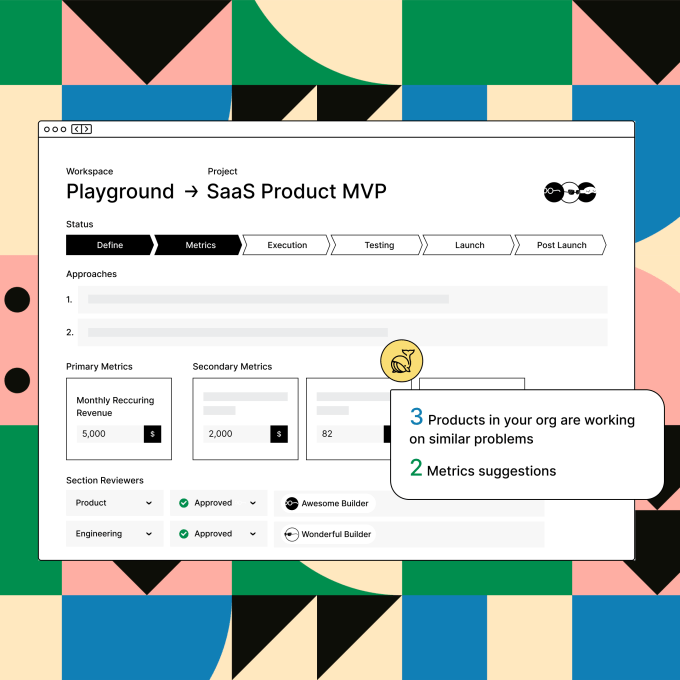It’s that time of year again. This morning, Y Combinator (YC) held a demo day for its 2022 summer cohort – the 35th demo day in the incubator’s history. There was no shortage of compelling presentations on the day, with founders from 30 countries and startups from a variety of sectors including software tools, fintech and healthcare.
Competition was fiercer than usual following YC’s decision in early August to reduce the lot size by 40% to about 250 companies in delicate of economic difficulties. But a particular category of startups stood out: those that operate artificial intelligence and machine learning to solve problems, especially for business-to-business customers.
There were only 14 such startups this year compared to 20 last year, which makes sense because the overall cohort is also smaller. But the parties share a common theme: sales. Their products largely target sales and marketing hurdles at a time when businesses are struggling with the pressures of the recession.
Economic challenges aside, a enormous addressable market makes sales an attractive problem for startups. Substantial View Research established the sales automation software market alone – $7.29 billion in 2019.
Pilot artificial intelligence
Pilot artificial intelligence develops a tool for sales representatives that automatically translates call recordings into structured data, which then directly updates the customer relationship management (CRM) system. The idea is to save reps time and assure their managers that pipeline data is up to date.
It’s worth noting that other platforms like Fireflies.ai and Microsoft Viva Sales also do this. However, Pilot AI founder Max Lu, previously a software engineer at Salesforce, says his product is more detailed than most others and can generate a summary of each call, as well as data points related to CRM fields and questions asked by reps, as well as key parts recipient’s responses.
Typical
Typical is also in the sales space, but focuses on text prediction in web applications via a browser extension and server-side API. Initially developed as a smartphone app, Typewise – which claims to have Fortune 500 clients in the e-commerce and logistics industries – can auto-complete sentences, insert intelligent snippets, automatically reply to messages, and check for consistency of style and grammar.
Sounds a bit like TextExpander and Magical. However, founder David Eberle says Typewise is compatible with any CRM system and can be tailored to a company’s data using an analytics component that suggests what words and phrases to operate.
AI startups that participated in YC Summer 2022 that did not fit into the sales and marketing technology category tended to focus on software tools, which represented another lucrative avenue for growth. Considering that according to one recent study, 55% of developers have difficulty finding time to develop internal applications questionnaireVCs certainly see an opportunity: them invested Last year, $37 billion went to startups creating developer tools.
Monterey A.I
Monterey A.I deals with a decidedly different part of the product lifecycle: development. Founder Chun Jiang pitches it as a “co-pilot for product development” that replaces documents with workflows that automatically generate product specifications, including feature ideas, metrics, designs, and go-to-market plans.
Using Monterey, customers select a product template based on their operate case (e.g., software-as-a-service) and configure inputs, checking dependencies to resolve conflicts. Jiang says the platform can detect conflicts and dependencies between teams while providing a bird’s-eye view of the portfolio to adjust features.

AI development tools
AI development tools perhaps it could be used in conjunction with Monterey AI.
Dev Tools AI offers a library designed to make it easier to write web application tests in existing development environments by simply drawing a box on a screenshot. Using computer vision, it finds elements on websites such as search boxes and buttons, and even sees controls in online games. It can also test for page indexing errors, including broken links, 404 errors, and console errors.
As founder Chris Navrides points out, writing end-to-end web tests is traditionally a time-consuming process, requiring repeated digging into the website’s code as the application being tested evolves. Assuming developer tool AI performs as expected, it can be a valuable addition to the arsenals of quality assurance testing teams.
Mayan laboratories
Mayan laboratories creates a platform for translating natural language into code. Like GitHub’s Copilot, Maya gradually generates programs and displays results in response to English steps.
One of Maya’s founders, Sibesh Kar, says the service builds applications using a combination of conditional logic, AI-powered search and classification, fine-tuned language models, and template generation. Currently, Maya can query and plot data from external sources such as Google Sheets, Notion, or Airtable, and perform actions on that data, such as sending an email, uploading a file, or updating a database entry.
The long-term goal is to extend Maya to include tasks such as web navigation, API linking, and workflow automation, which, given the current state of text-to-AI systems, seems within the realm of possibility.
Hi
For those who prefer a hands-on approach to programming, Hi claims to operate artificial intelligence to “instantly” answer developers’ technical questions with explanations and relevant code snippets from the Internet. According to co-founder Michael Royzen, the platform relies on enormous language models (e.g. GPT-3) that reference several sources to find the most likely answers.
When Hello users submit a query, the service retrieves and re-evaluates the site’s raw data from Bing and then derives the information using the models mentioned above. Another set of models translates results into human-readable answers.

vocation
Another startup that relies on language models is vocation, which provides data analysts, data analysts, and software engineers with a tool to create custom natural language processing models. Using enormous language models similar to GPT-3, NuMind can be used, for example, to find job offers on a recruitment platform that best match a given CV.
NuMind founders Etienne Bernard (former head of machine learning at Wolfram Research) and Make.org co-founder Samuel Bernard say interest in the company has been quite powerful, with its paying customer base growing to nine within a month.

